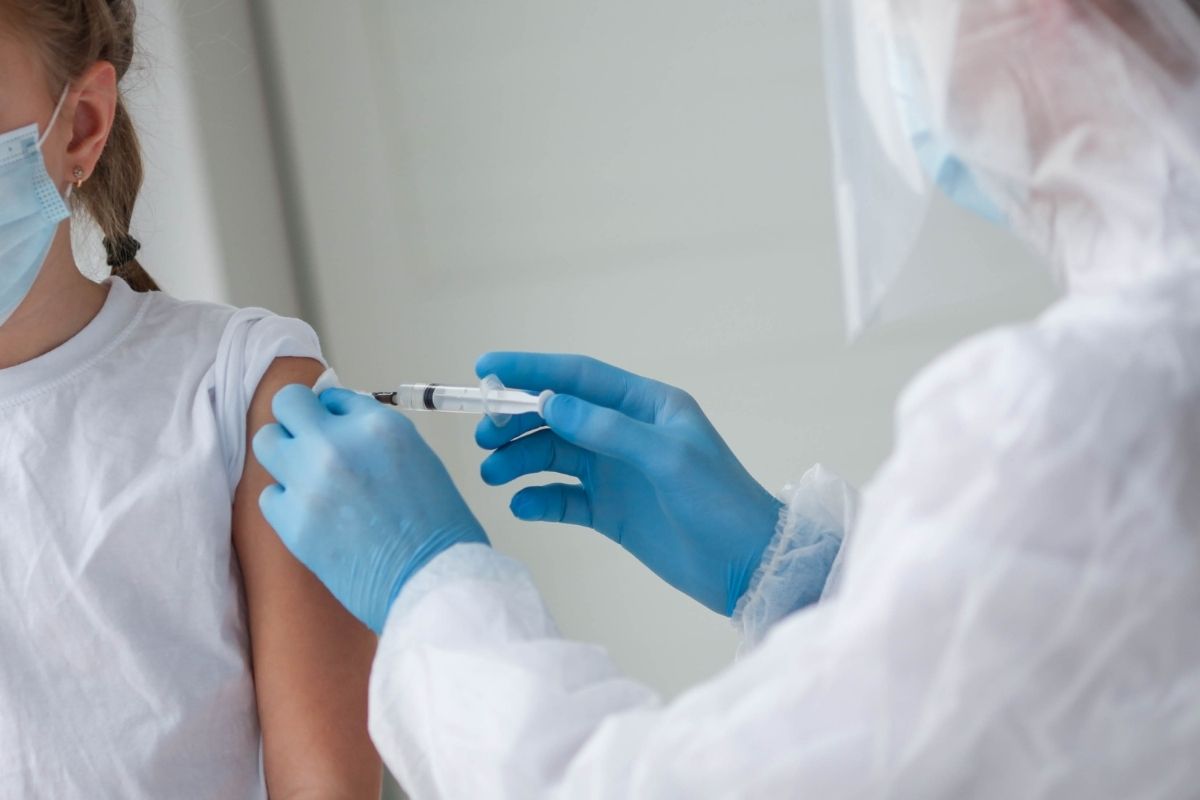The race isn’t over, but we’re finally making some progress in handling the coronavirus pandemic. With COVID-19 vaccines rolling out everywhere in the U.S., groups of people based on their ages and conditions are able to get vaccinations. And now, it looks like teenagers and children are soon to get vaccinated as well.
Videos by Rare
The U.S. Food and Drug Administration (FDA) recently granted emergency use authorization to Pfizer-BioNTech’s vaccine for children ages 12 years old and older, and those who are 18 years old and older are eligible for Moderna vaccines or Johnson & Johnson vaccines, according to Good Morning America.
Pfizer, who said it will likely seek its emergency use authorization for younger kids within the age group of 2-11 years old, has actually currently been conducting vaccine trials with children as young as six months old. Moderna and Johnson & Johnson are still conducting clinical trials and have yet to be authorized to give the vaccine to younger children.
So if you’re a parent, what do you need to know about the vaccine in how it would affect your children?
The Vaccine Platforms Do NOT Cause COVID-19.
All the vaccine platforms have created genetic “instruction manuals” that help the body fight future infections or trigger an immune response, just as any other vaccine that helps fight infectious diseases. Pfizer and Moderna use mRNA technology that won’t alter human DNA, and the Johnson & Johnson vaccine uses an inactivated adenovirus vector, Ad26, that will help make the SARS-CoV-2 spike protein that triggers an immune response. So no, the vaccine will not cause COVID-19.
Why Should I Vaccinate My Kids?
Children can still get the virus and transmit the virus to adults, despite there not being as many deaths from the virus in the pediatric age groups. According to the American Academy of Pediatrics, children make up 22.4% of new weekly cases, with 3.7 million children diagnosed during the course of the pandemic. Dr. Jennifer Ashton, an ABC News chief medical correspondent, says,
“There are really two big reasons why kids need to get the vaccine. One of them is that it is possible that they could be infected and then unknowingly pass COVID-19 to someone with a serious or underlying, pre-existing medical condition. And also, though it’s very uncommon and unlikely, it is still possible that children infected with COVID-19 could become seriously ill or worse. We have seen that. It’s important to think in ripple effects, outside the box,” Ashton added. “It’s not just your home environment that you need to worry about.”
Will My Kids Experience the Same Side Effects as Adults?
According to initial reports from the clinical trials, children apparently experience the same side effects as older people do: mild or moderate, with no safety concerns yet. Peter Marks, director of the FDA’s Center for Biologics Evaluation and Research said, “Adolescents experienced a similar range of side effects as seen in older teens and young adults — generally seen as cold-like symptoms in the two to three days after the second dose — and had an “excellent safety profile,” adding, “Based on all this available information, the FDA determined the Pfizer-BioNTech vaccine has met all of the criteria required to amend the EUA, which concluded that the known and potential benefits of this vaccine in individuals 12 years of age and older outweigh the vaccines known and potential risks.”
Kids will also receive the same dosage as adults do, currently the two-dose Pfizer vaccine, and will be able to follow updated Centers for Disease Control and Prevention (CDC) guidelines for vaccinated people two weeks after they’ve received both doses. They will, however, along with everyone else, still have to wear a mask in large crowds and try to adhere to social distancing to prevent the spread, but will not have to worry about quarantining after known exposure.
Will the Vaccine Affect Puberty?
According to Dr. Ashton, who is a practicing, board-certified OBGYN, explained that there should be no concern in the vaccine affecting normal puberty growth. She says, “It is really important to understand basic biology here. Women can have changes in their menstrual cycle and also have gotten the vaccine, that does not mean that one caused the other. Right now there is no puberty concern. There is no fertility concern.”
The vaccine should be available for kids not only through pharmacies, but also pediatricians, medical centers, and larger vaccine events. Other health groups have also advocated for children getting the vaccine, including the American Academy of Pediatrics (AAP), with AAP President Dr. Lee Savio Beers stating,
“Research has shown the new vaccines to be remarkably effective. The vaccine is a powerful tool that — in conjunction with other safety measures like face masks, good hygiene and physical distancing — can help us end the suffering and death caused by COVID-19. Pediatricians can play a key role in making that happen. Our youngest generations have shouldered heavy burdens over the past year, and the vaccine is a hopeful sign that they will be able to begin to experience all the activities that are so important for their health and development. We look forward to the discussion by the Advisory Committee on Immunization Practices of the CDC, which will make recommendations about the use of this vaccine in adolescents. Meanwhile, pediatricians stand ready to assist in efforts to administer this and other COVID-19 vaccines.”
Will My Child Be Required to Get the Vaccine to Return to School?
That’s actually dependent on each state’s government to decide what they want to do for the next school year. Although, many colleges and universities have required that students get vaccinated before they return to campus.



